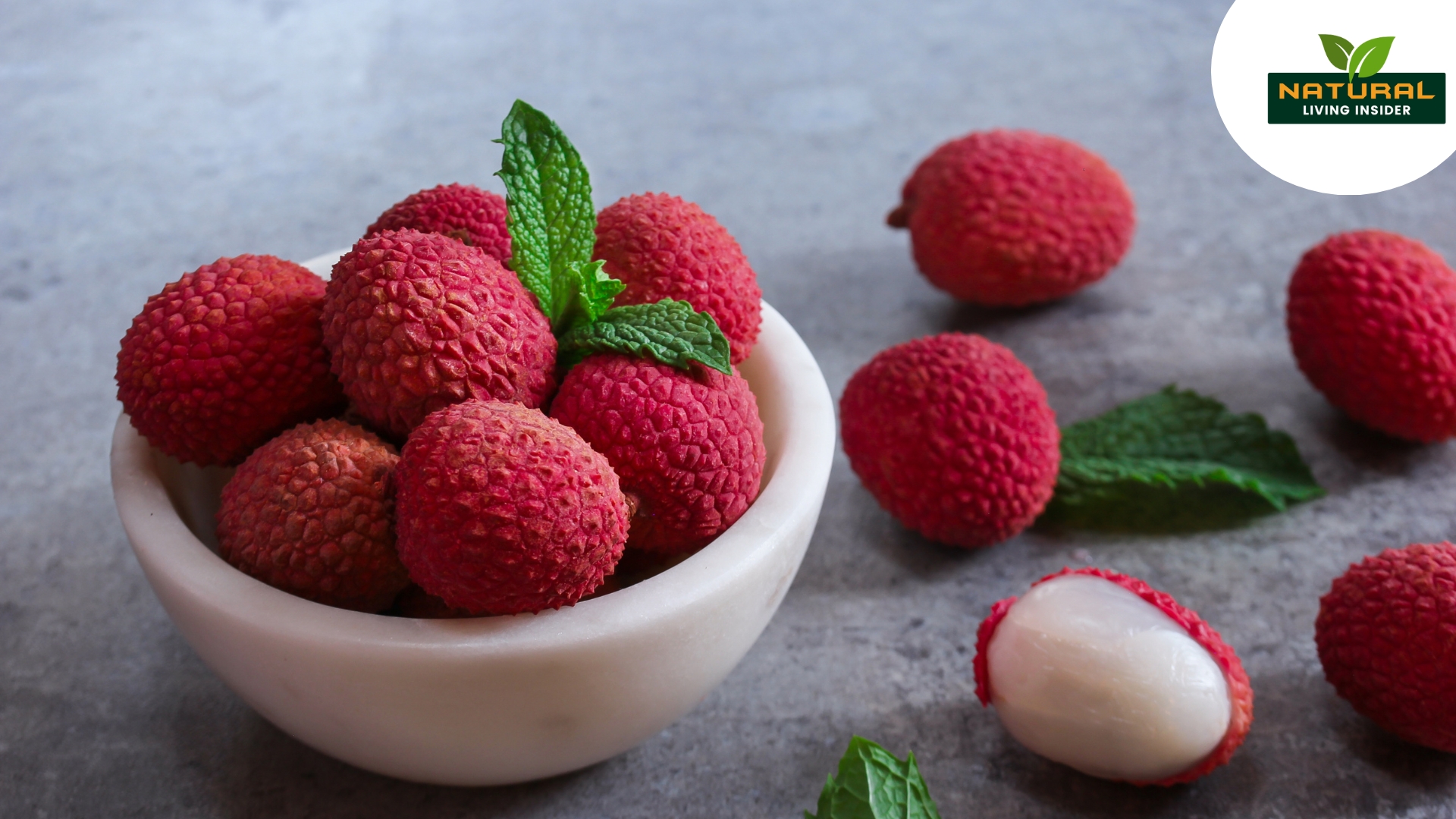
Lychee (Litchi chinensis), a small, round tropical fruit known for its sweet and floral flavor, is packed with nutrients and health-promoting properties. Native to Southeast Asia and widely grown in India, China, and Thailand, lychee has become a favorite summer delicacy around the world. But beyond its juicy taste, lychee offers a wide range of uses and benefits — along with a few side effects to be aware of.
In this comprehensive guide, we’ll explore the health benefits of lychee, how to eat it, potential side effects, and what to keep in mind before adding it to your diet.
Lychee is a tropical fruit that belongs to the soapberry family, Sapindaceae. It has a rough red outer shell, white translucent flesh, and a dark seed in the center. Known for its juicy sweetness, lychee is often eaten fresh, juiced, or added to desserts and beverages.
Rich in vitamin C, antioxidants, potassium, and other vital nutrients, lychee supports immunity, skin health, and digestion. However, overconsumption or eating it on an empty stomach — especially in children — can lead to adverse effects. Let's dive into the detailed uses, benefits, and precautions.
Table of Contents
Health Benefits of Lychee
1. Boosts Immunity
Lychee is loaded with vitamin C, a powerful antioxidant that boosts the immune system and helps the body fight infections. One cup of lychee provides over 100% of your daily vitamin C needs.
2. Rich in Antioxidants
Lychee contains polyphenols like epicatechin and rutin, which protect the body from oxidative stress and free radical damage. These antioxidants may reduce the risk of chronic diseases such as heart disease and cancer.
3. Supports Heart Health
The potassium in lychee helps regulate blood pressure and maintain proper heart function. Its antioxidants also reduce bad cholesterol (LDL) and improve blood circulation.
4. Improves Digestion
Lychee contains dietary fiber which aids in proper digestion, prevents constipation, and supports a healthy gut. It also contains digestive enzymes that improve nutrient absorption.
5. Promotes Skin Health
Vitamin C and antioxidants in lychee help in collagen production, improving skin elasticity and reducing signs of aging. Its anti-inflammatory properties may also reduce acne and skin irritation.
6. Weight Management
Being low in calories and high in water content, lychee is a great fruit to include in a weight loss diet. It provides essential nutrients without contributing to excess calorie intake.
7. Anti-inflammatory Properties
Lychee contains anti-inflammatory compounds that may help reduce inflammation-related issues, such as arthritis, muscle pain, and skin conditions.
How to Eat Lychee
Lychee can be enjoyed in several delicious ways:
-
Fresh: Simply peel the skin, remove the seed, and enjoy the juicy flesh.
-
Juice or Smoothies: Blend lychee with water, lemon, or other fruits for a refreshing summer drink.
-
Salads: Add peeled lychee to fruit or green salads for a sweet twist.
-
Desserts: Use in ice creams, yogurts, puddings, or cakes.
-
Canned Lychee: Available in syrup for off-season use — though fresh is always better for nutrient value.
Tip: Always remove the seed before eating, as it's inedible and slightly toxic.
Possible Side Effects of Lychee
While lychee is generally safe, excessive or improper consumption can lead to some side effects:
1. Hypoglycemia Risk
Unripe lychees, when consumed on an empty stomach, may lower blood sugar levels drastically — especially in children. This has been associated with outbreaks of acute encephalopathy in regions like Bihar, India.
2. Allergic Reactions
Some individuals may experience allergic symptoms like itching, swelling, or difficulty breathing after consuming lychee.
3. Digestive Issues
Eating too many lychees at once may cause bloating, gas, or an upset stomach due to their sugar and fiber content.
4. May Interact with Medications
People on diabetes medications or blood pressure drugs should consult a doctor before including large amounts of lychee in their diet.
Things to Keep in Mind Before Eating Lychee
-
Always eat ripe lychee; avoid unripe fruit.
-
Do not eat on an empty stomach, especially in the morning or after fasting.
-
For children, limit intake to a few lychees per day.
-
Always remove the peel and seed before consumption.
-
Choose fresh and organically grown lychee when possible.
-
Store lychee in a cool, dry place or refrigerate to maintain freshness.
Interactions of Lychee with Other Drugs
Lychee may interact with the following types of medications:
-
Diabetic medications: Lychee’s natural sugars can spike or lower blood sugar levels.
-
Blood pressure drugs: Potassium-rich foods may affect how your body processes these drugs.
-
Anticoagulants: Vitamin C and other compounds may affect blood clotting when combined with blood thinners.
Recommendation: Consult your healthcare provider if you are on medication and want to consume lychee regularly.
Lychee is a delicious, nutrient-rich fruit that offers multiple health benefits — from boosting immunity and aiding digestion to promoting radiant skin and heart health. However, moderation is key. Eating lychee the right way can add significant value to your diet, but overconsumption or eating unripe fruits on an empty stomach may pose risks.
Always follow safe practices, especially when offering lychee to children or those with health conditions. By enjoying this tropical delight in its healthiest form, you can fully unlock the benefits of lychee without any side effects.


